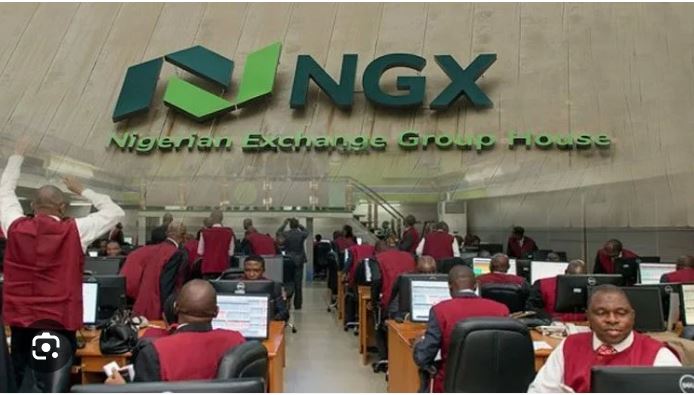The Nigerian stock market witnessed a significant increase in transactions during the week, with 3.188 billion shares valued at N99.685 billion changing hands in 132,711 deals. This represents a 10.4% growth in the total value of transactions compared to the previous week, when 3.117 billion shares worth N90.295 billion were traded in 118,018 deals.
The Financial Services Industry dominated the activity chart, accounting for 71.59% and 38.94% of the total equity turnover volume and value, respectively. The industry saw 2.282 billion shares valued at N38.812 billion traded in 57,934 transactions. The Consumer Goods Industry followed, with 198.393 million shares worth N12.836 billion traded in 17,508 deals, while the Oil and Gas Industry came in third, with 186.744 million shares valued at N35.173 billion traded in 8,811 deals.
The top three equities – FCMB Group Plc, Access Holdings Plc, and Universal Insurance Plc – accounted for 39.17% and 14.32% of the total equity turnover volume and value, respectively, with 1.249 billion shares worth N14.277 billion traded in 10,359 deals. The NGX All-Share Index and Market Capitalisation appreciated by 1.12% to close the week at 140,545.69 and N88.922 trillion, respectively.
Seventy equities appreciated in price during the week, while 22 depreciated, and 55 remained unchanged. The top five gainers for the week were Etranzact International, Regency Alliance Insurance, Chellaram, Daar Communications, and Royal Exchange, which increased by 45.15%, 27.69%, 26.67%, 23.26%, and 22.34%, respectively. On the other hand, the top five decliners were Union Dicon Salt, Thomas Wyatt Nigeria, Secure Electronic Technology, Nigerian Enamelware, and May and Baker Nigeria, which lost N2.20, 49k, 10k, N3.90, and N1.80, respectively.
The increase in market activity and the appreciation of the NGX All-Share Index and Market Capitalisation indicate a positive trend in the Nigerian stock market. The growth in transactions and the dominance of the Financial Services Industry suggest a strong demand for stocks in this sector. As the market continues to evolve, investors will be watching closely to see how these trends develop and impact the overall performance of the Nigerian economy.
